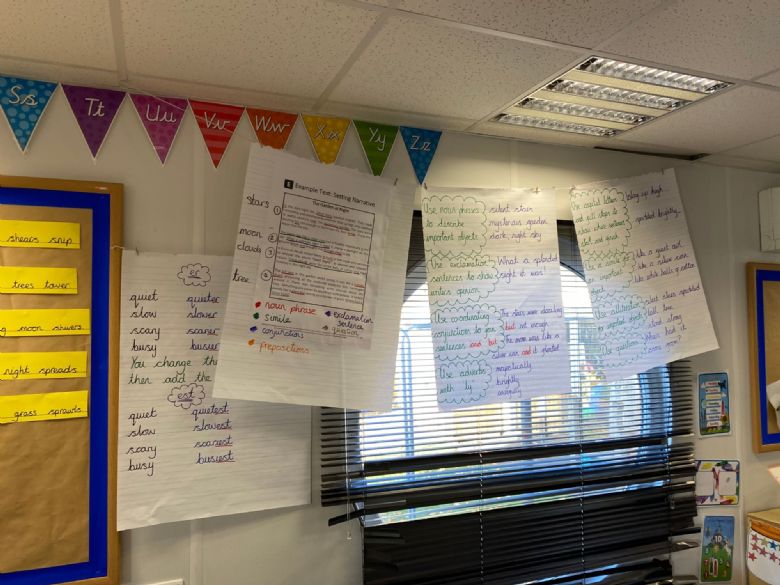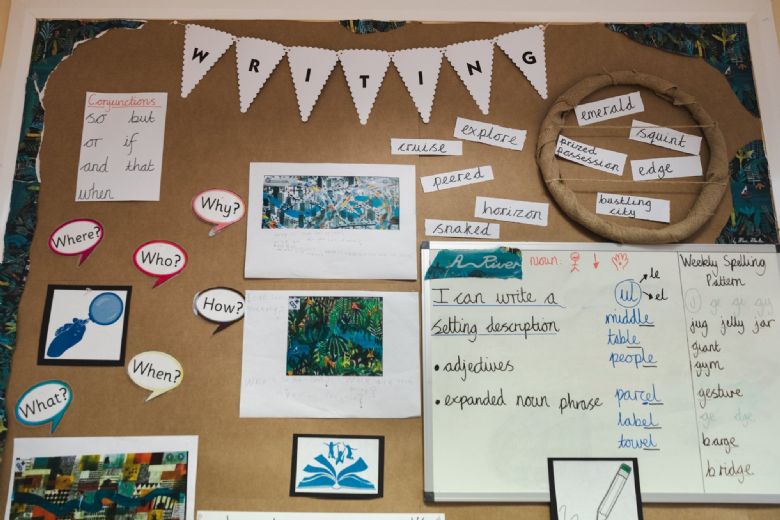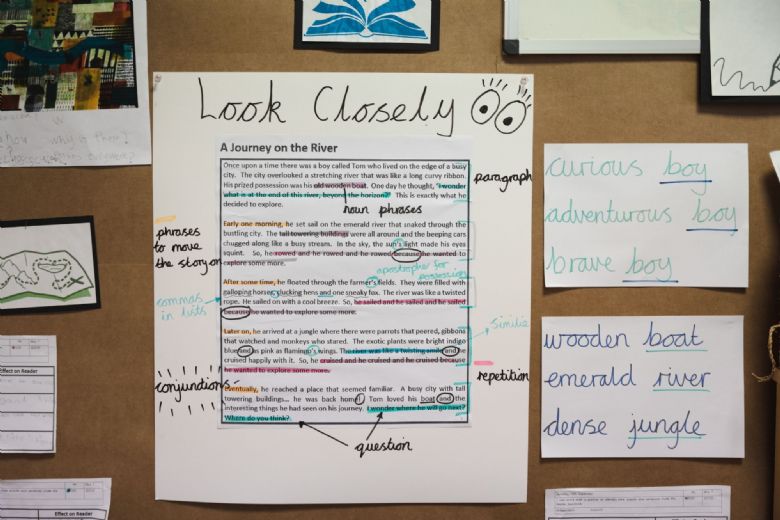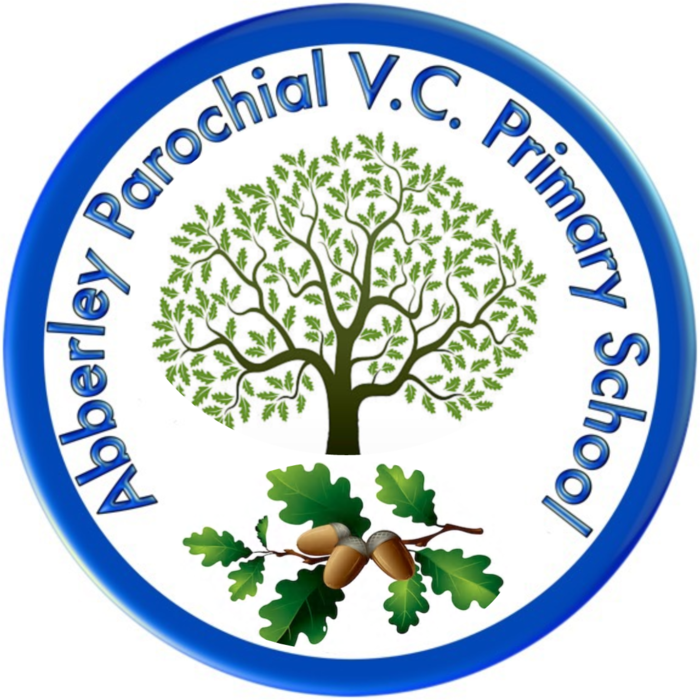English
Reading at Abberley
Early Years
At Abberley, we are committed to helping every child become a confident, enthusiastic reader from the very start. In our Early Years provision, we use Little Wandle Letters and Sounds, a highly structured, research-backed phonics programme that supports children in learning to read and write effectively.
How It Works
Little Wandle teaches children to recognise the sounds that letters make (phonemes) and how to blend these sounds to read words. In our Early Years classrooms, daily phonics sessions are engaging and interactive, combining listening, speaking, reading, and writing activities. Children learn to read high-frequency words, decode new words, and develop their comprehension skills in a structured sequence that builds their confidence and enjoyment in reading.
Reading for Pleasure
Alongside phonics, we provide a wide range of carefully chosen books to nurture a love of reading. Children have access to both decodable books that match their phonics stage and a variety of storybooks to spark imagination and discussion. Daily storytime and shared reading sessions encourage children to explore language, ask questions, and develop a rich vocabulary.
Supporting Every Child
Little Wandle includes regular assessment to ensure that every child receives the right level of support. For children who need extra help, we provide additional small-group or one-to-one sessions, ensuring no child falls behind. We also provide regular guidance for parents and carers so they can support reading at home, reinforcing learning in a fun and engaging way.
Impact on Learning
By following Little Wandle in the Early Years, our pupils develop strong phonics skills, gain confidence in reading, and start their journey to becoming lifelong learners. Children leave Early Years ready for Key Stage 1 with a love of books, strong literacy foundations, and the skills to read independently.
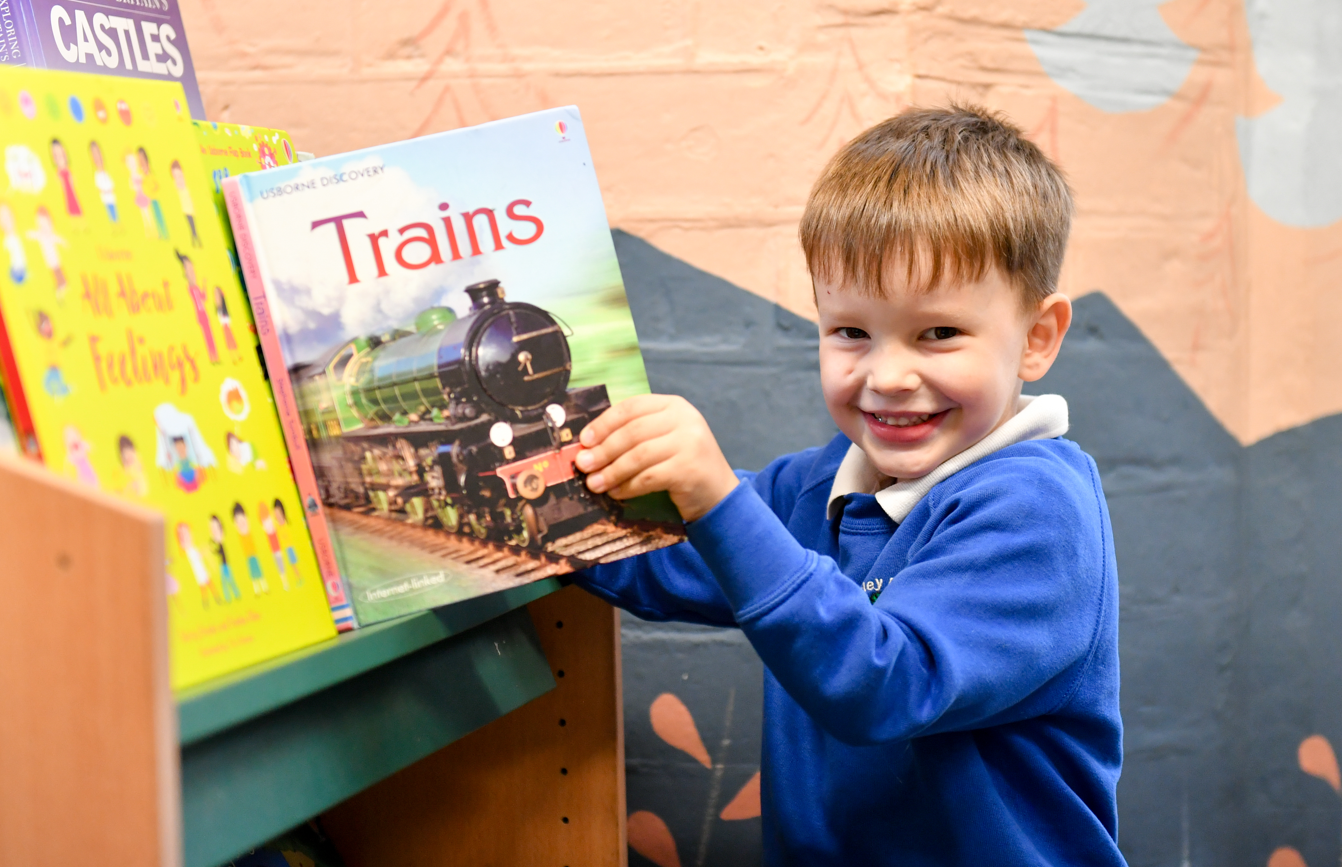
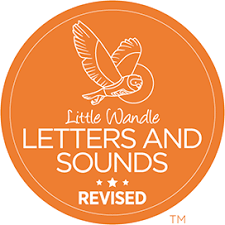
'Early reading is prioritised. Staff are highly skilled in delivering phonics lessons. Pupils learn to blend sounds to read simple words and sentences. They apply newly learned sounds when reading books that match these sounds. Pupils who fall behind are swiftly identified. While they are well-supported to catch up in their phonics knowledge, some pupils do not get enough additional opportunities to practise their reading. This has an impact on the speed at which they become confident, fluent readers.' Ofsted March 2025
Year 1
In Year 1, we continue to build on the strong foundations set in Early Years, using Little Wandle Letters and Sounds to develop confident, fluent readers. The programme ensures that children consolidate their phonics knowledge, apply their skills in reading and writing, and continue to develop a love of books.
How It Works
Year 1 pupils participate in daily phonics lessons that focus on reading and spelling with increasing confidence. Children practise blending sounds to read new words, segmenting words to spell accurately, and recognising tricky and high-frequency words. Lessons are interactive and tailored to each child’s needs, ensuring that all pupils can progress at a pace suited to them.
Reading for Pleasure
Alongside phonics, children have access to a wide range of decodable books matched to their phonics stage, as well as a variety of storybooks and non-fiction texts to encourage curiosity and discussion. Daily storytime and guided reading sessions help children develop comprehension, vocabulary, and a love of reading.
Supporting Every Child
Regular assessment ensures that any child who needs extra support receives it promptly, through small-group or one-to-one sessions. Parents and carers are provided with guidance and resources to support reading at home, reinforcing learning in a fun and engaging way.
Impact on Learning
By the end of Year 1, pupils are confident, independent readers who can decode, comprehend, and enjoy a wide range of texts. They leave the year ready to tackle the wider curriculum with strong literacy skills and a genuine love of reading.
Year 2
In Year 2, pupils continue to build on the strong foundations of phonics from Early Years and Year 1, developing as confident, fluent readers and accurate spellers. All children follow Little Wandle Letters and Sounds for daily phonics review, and begin Little Wandle Spelling, starting with a Phase 5 review and then moving through the “Bridge to Spelling” stage before progressing to the main spelling programme.
How It Works
Year 2 pupils have a daily Little Wandle Spelling session, consolidating previously learned phonics while gradually introducing spelling rules and patterns. Alongside this, most children take part in fluency sessions, which focus on reading speed, expression, and comprehension. Some children may spend additional time practising phonics to ensure they are fully confident before joining the fluency sessions.
When children are considered fluent readers, they move on to Accelerated Reader books, which allow them to read independently at a level suited to their ability. To support this, all Year 2 pupils have weekly dedicated library time, ensuring they can choose books that match their reading level and interests, fostering both confidence and a love of reading.
Supporting Every Child
Regular assessment allows teachers to identify pupils who need extra support. Targeted small-group or one-to-one sessions help children consolidate their learning, and some pupils may receive rapid catch-up sessions to ensure they meet expected reading standards. Parents and carers are provided with guidance and resources to support reading, spelling, and fluency at home.
Impact on Learning
By the end of Year 2, our aim is for all pupils to be fluent, confident readers and accurate spellers, equipped with the skills and enthusiasm to tackle Key Stage 2. They have a strong foundation in literacy, enjoy reading and writing, and are ready for the next stage of their learning journey, with opportunities to explore books independently and engage with texts that inspire and challenge them.
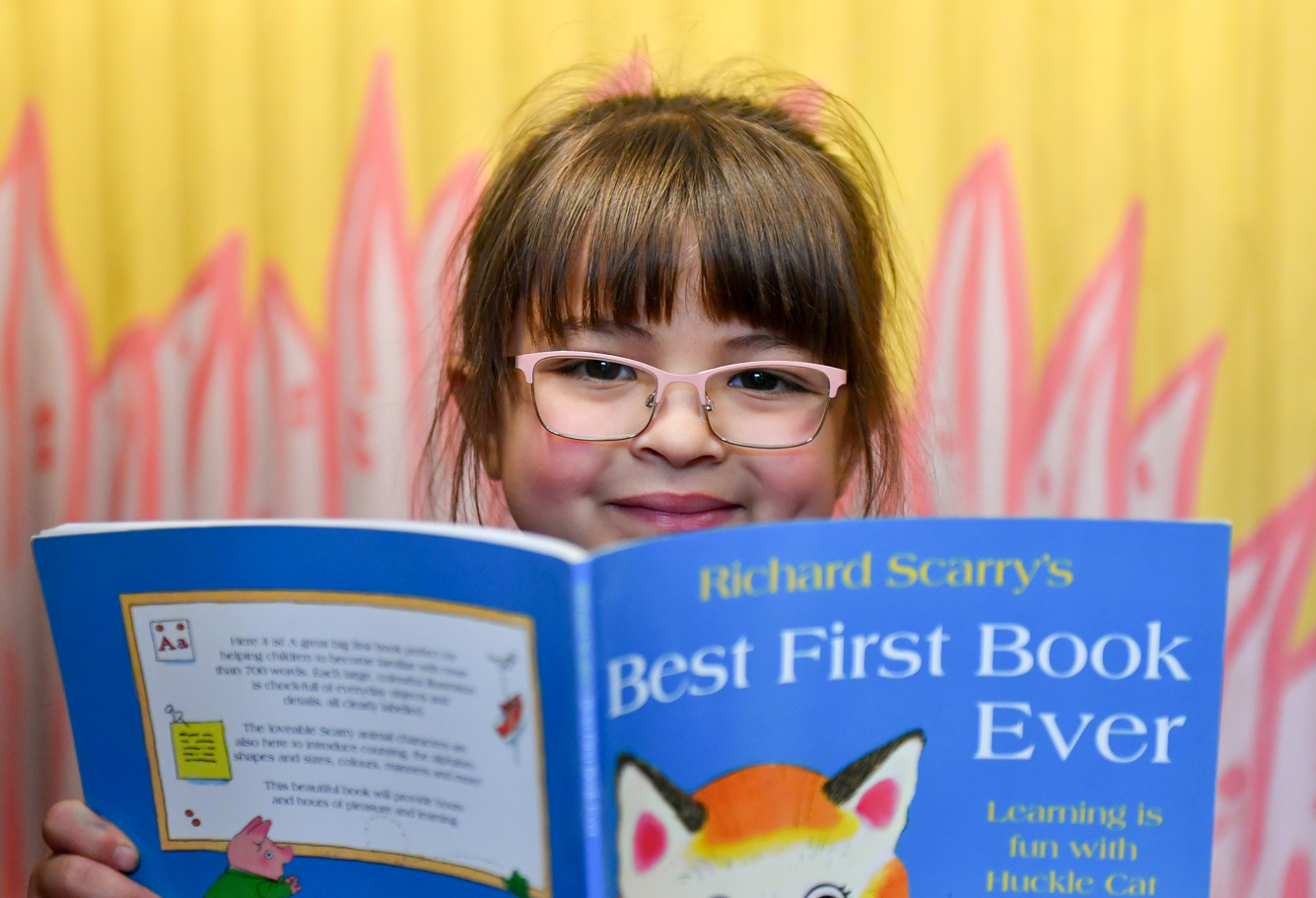
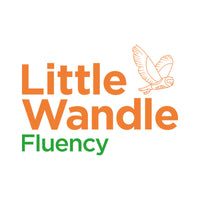
Reading in KS2
In Key Stage 2, reading continues to be a central part of our curriculum, building on the strong foundations of phonics, fluency, and comprehension developed in Key Stage 1. As pupils become more confident readers, lessons focus increasingly on comprehension, while ensuring that vocabulary acquisition, exploration of meaning, and reading fluency remain key priorities.
We use curriculum-linked texts to make reading purposeful and connected to the wider learning journey. Each unit begins by exploring what children already know about the subject, activating prior knowledge and helping them make connections. Pupils then focus on the meaning and pronunciation of new words, ensuring they understand and can use these terms in context.
Children have multiple opportunities to hear the text, to read independently, and to work in small groups, which allows them to develop fluency, expression, and confidence. Once familiar with the text, pupils move on to comprehension-based activities, answering questions that challenge their understanding, inference, and ability to explain ideas clearly. This approach ensures that reading in KS2 is interactive, engaging, and skill-focused, helping pupils to become confident, reflective readers who can access and enjoy a wide range of texts.
Alongside these lessons, each class introduces a new class novel each half-term. Twice per week, children take part in dedicated reading sessions where they can listen to the story, read in pairs, and read independently. A key focus of these sessions is discussion: children explore new vocabulary and delve into the subject matter of the story, prioritising understanding over written tasks. Lessons are flexible and can take multiple directions depending on the topics or themes that arise, allowing children to engage deeply with the text and develop their critical thinking skills in an enjoyable, low-pressure environment.
This combination of structured comprehension lessons and immersive class novel sessions ensures that KS2 pupils become confident, reflective readers who can access, understand, and enjoy a wide range of texts, while continuing to develop vocabulary, fluency, and a love of reading.
Accelerated Reader
At Abberley, we use Accelerated Reader to track children’s reading progress, with regular assessments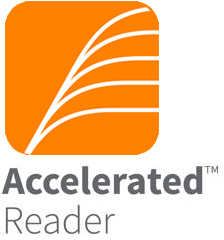 determining each child's reading ZPD (Zone of Proximal Development), allowing them to access a suitable range of books from the library. From Year 2 onwards, after finishing a book, children take online quizzes to assess their comprehension, and their successes are celebrated during weekly assemblies, further encouraging a love for reading. In addition, Accelerated Reader allows us to determine whether children are in need of further reading intervention, which is swiftly timetabled through collaboration with the SENCO and class teacher.
determining each child's reading ZPD (Zone of Proximal Development), allowing them to access a suitable range of books from the library. From Year 2 onwards, after finishing a book, children take online quizzes to assess their comprehension, and their successes are celebrated during weekly assemblies, further encouraging a love for reading. In addition, Accelerated Reader allows us to determine whether children are in need of further reading intervention, which is swiftly timetabled through collaboration with the SENCO and class teacher.
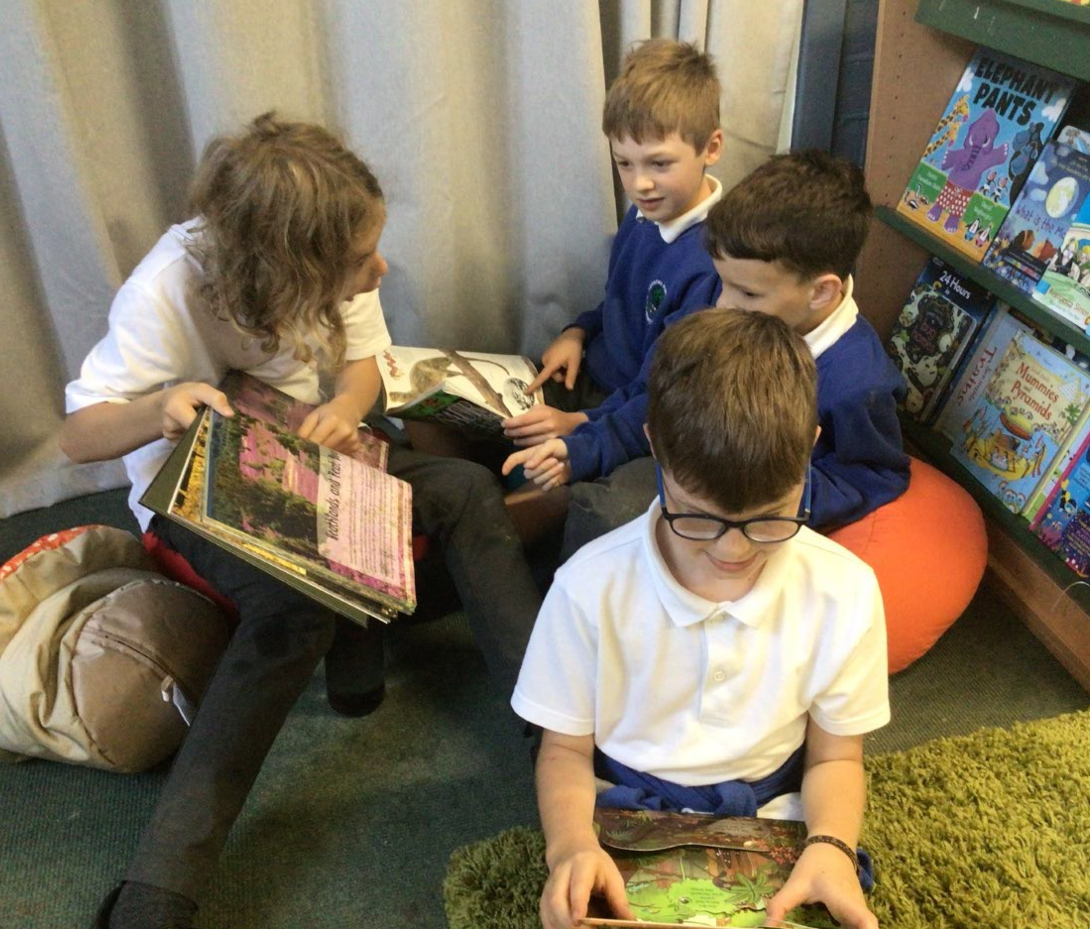
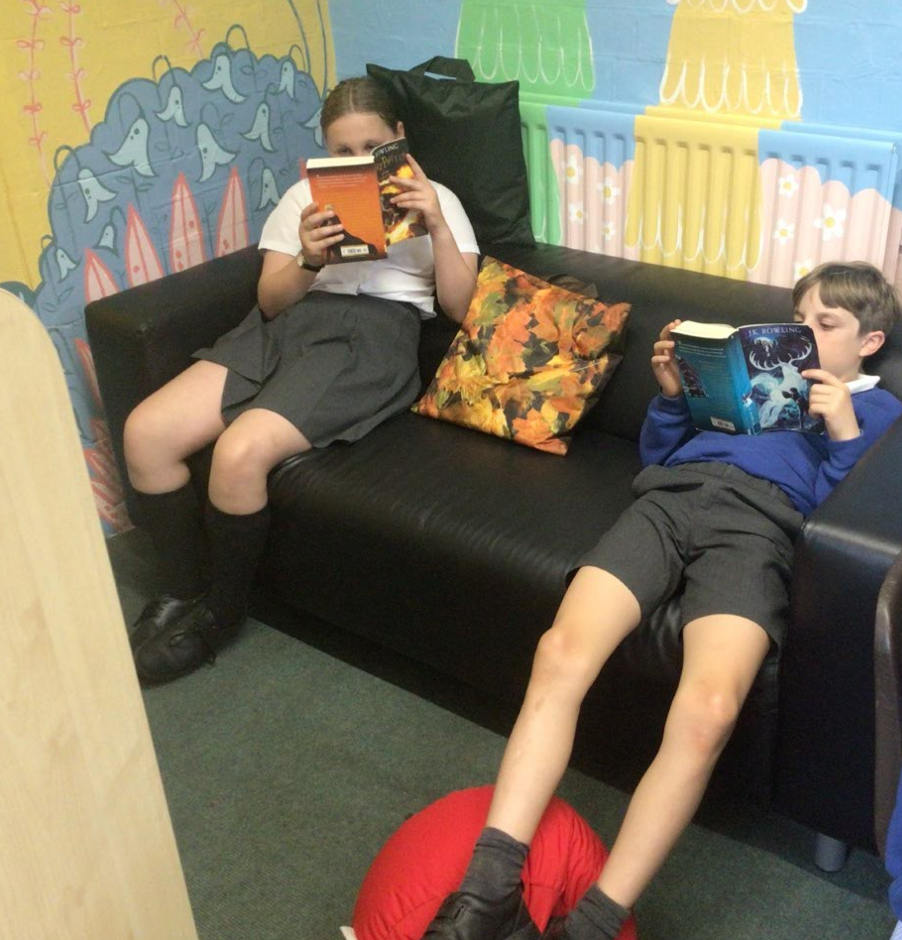
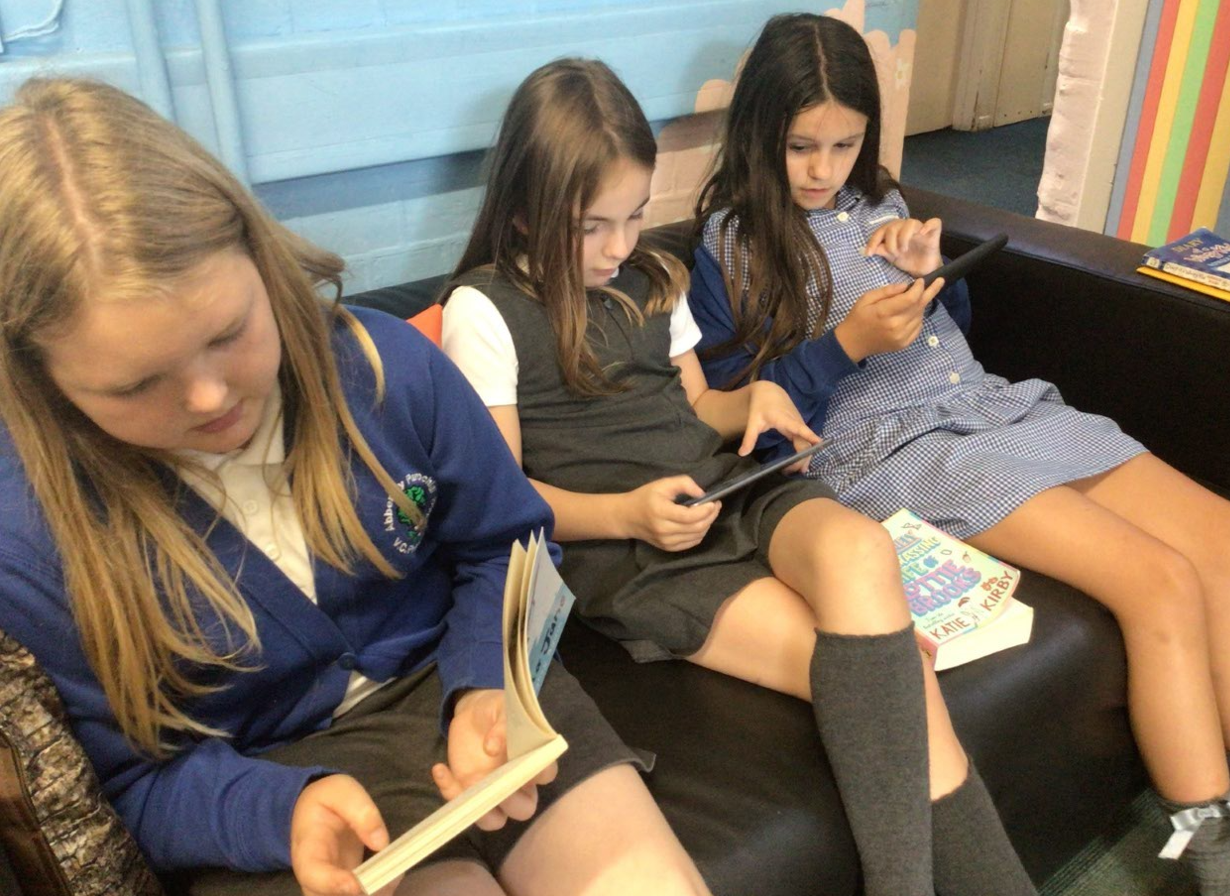
Writing at Abberley
Early Years
In the Early Years, children begin by focusing on the basic skills of writing and mark making, often linked closely to their phonics learning. Emphasis is placed on letter formation, pencil control, and developing confidence in putting marks on paper, helping children to communicate their ideas through writing. Once these foundational skills have been mastered, pupils progress to the Ready Steady Write programme, which builds on their early mark-making and phonics knowledge to develop structured writing, sentence formation, and the ability to express ideas more confidently.
Year 1-6
At our school, we aim to develop confident, independent writers from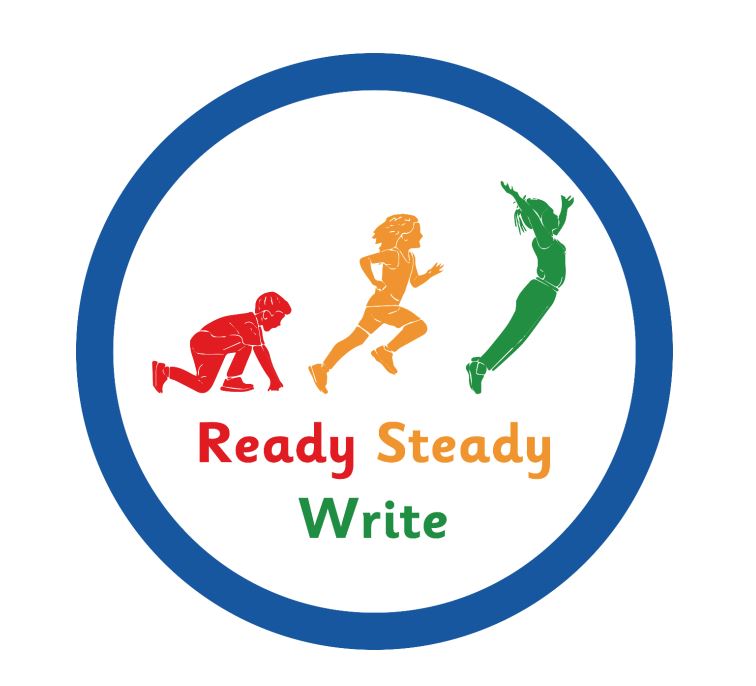
In Years 1 to 6, we continue to develop and refine writing skills progressively. Lessons are carefully sequenced to support children in developing grammar, punctuation, spelling, and vocabulary, while giving them opportunities to write in a range of genres and for different purposes. We focus on helping children express their ideas clearly and creatively, building confidence in both independent and guided writing.
Our approach is inclusive and adaptable to meet the needs of all learners, including those with additional needs, EAL learners, and children who need extra support to catch up. Teachers provide targeted guidance, small-group support, and opportunities to practise writing regularly, ensuring every child can make progress. Across all year groups, writing is linked to high-quality, language-rich texts, enabling children to explore vocabulary and ideas in context.
This structured, progressive approach ensures that pupils leave each year with the skills, confidence, and enthusiasm to tackle increasingly complex writing tasks, preparing them for success across the curriculum and beyond.
Our Ready Steady Write resources follow a common sequence: Immerse, Analyse, Plan and Write. This is based on a tried and tested model (UKLA and Primary National Strategy, 2004 p.7) and acknowledges the strong interrelationship between speaking and listening, reading and writing.
As children progress through our writing curriculum, they are encouraged to become independent learners, taking ownership of their writing. They use tools such as sentence checkers to review their work, check for accuracy in spelling, punctuation, and grammar, and make improvements where needed. This approach helps children develop self-confidence and independence, allowing them to apply the skills they have learned in lessons to their own writing.
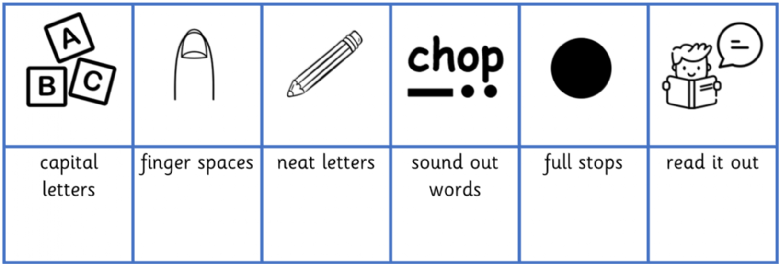
EYFS sentence checker
